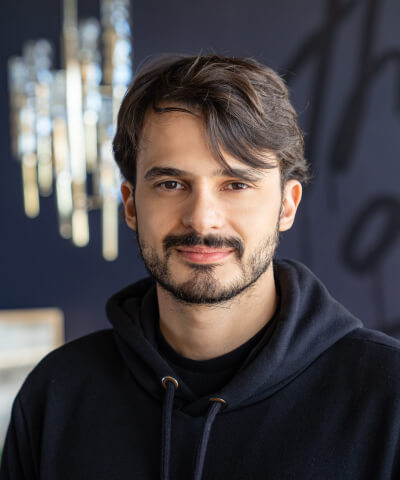About Us
he Institute for Development and Communication (IDC) is a premier autonomous research,
training and evaluation organisation of North-West of India.


About Shikhadhaari Bharat
Vision and Mission
Vision: Empowering aspiring individuals to achieve their dream government jobs through exceptional guidance, modern teaching methodologies, and a commitment to excellence.
Mission: To provide comprehensive, results-driven coaching for government competitive exams by delivering quality education, personalized mentorship, and innovative resources, ensuring every student’s success in their career journey.
Approach
Our coaching institute adopts a student-centric methodology, combining structured, result-oriented learning plans with modern teaching techniques. We focus on personalized mentorship, adaptive strategies, and consistent performance evaluation to empower students with the knowledge, confidence, and skills needed to excel in government competitive exams.
Challenges
Navigating the diverse needs of students and keeping pace with evolving exam patterns are constant hurdles. Balancing personalized attention with large batch sizes, maintaining updated resources, and tackling intense competition in the coaching sector are key challenges that demand innovation, adaptability, and unwavering commitment to student success.
Why Choose Us
Strategic partnerships
At SHIKHADHAARI BHARAT, we are dedicated to empowering aspiring candidates with the knowledge, skills, and confidence needed to excel in government competitive examinations. Our expert faculty, with years of experience in guiding students, provides comprehensive coaching tailored to meet the unique demands of each exam.
Why Choose Us?
Our institute stands out with its expert faculty, comprehensive study materials, and proven track record of success. We offer personalized mentorship, innovative teaching methods, and a supportive learning environment to ensure each student achieves their government job aspirations with confidence and precision.
SHIKHADHAARI BHARAT struggle has been characterised by a critical appraisal of the existing social processes for the transformation of the society. It also involved tremendous effort to find direction between opposing claims of market i.e. efficiency, growth and social equity and justice. In the initial years of IDC’s existence, competing pulls of policy oriented research constraint to establishment priorities, problem centred research restricted by civil society felt needs and donors’ activism and fundamental research involving theory construction, model building and methodological innovations tamed by absence of systemic preference to speculate about other possibilities.
The trappings of glamour with instant recognition have thrown a new vocation of popcorn research, which challenged the established tedious collation of historical facts for social struggle. This drift swept away some of the research talent and resources. IDC could overcome some of these challenges by building its identity, autonomy and networks with independent minds. The foundation for intellectual adventurism to explore and build ‘other alternatives’ has been laid.
The core areas for research explorations have been sculpted for synergy to be infused by research leadership. The first concern continues to be re-examination of the theoretical underpinning of varied empirical explanations for knowledge synthesis and the second relates to its transfer for interventions. Our efforts have borne out that the research-based knowledge can be placed at the other end of the spectrum to make a difference at the margins. For transfer of knowledge, research outreach networks and interactive cultural sensitive methodological considerations to build connectivity with multicultural social sites shall continue to be our endeavour.
Dr. SHIKHADHAARI BHARAT
Societies have their own dynamism and are always in struggle to find answers to pertinent questions to make living more human.
There is an increasing trend to reinforce the assumption that efforts to realise ‘other utopias’ are counterproductive. And any departure from status quo is considered as rank deviation and monism is being presented as the only source of growth. It is in this atmosphere, that an institution was born and we named it Institute for Development and Communication (IDC).
IDC was set up by a group of persons who aspired to produce and disseminate pro-people knowledge. It started with abundance of ideas and an almost non-existent material resource base. Those were difficult times, but pregnated with ample opportunities to realise one’s dreams. These opportunities were shaped by globalisation of ideas, technological revolution and pressing need for holistic knowledge.
In its 16 years of completion, IDC availed many opportunities, but at the same time continued its endeavour to maintain research autonomy and build the institutional resource base to pursue research as per its own priorities and mandate. It took a conscious decision of not to build research capacities dependent on maintenance grants. Rather we competed for research projects and to build up institutional resource base by nurturing research capital.
IDC is engaged in social research with implications for change in the field of social development, governance to improve public safety and justice, economic development for distributive justice and gender studies. The main thrust is to undertake research in association with the stakeholders to bring about practical reforms and develop new ways of delivering justice, develop empirically tested models to make the development processes more accessible to the marginalised sections of the society. It also networks with civil society organisations for advancing knowledge and interventions that fit local needs.
IDC emphasises the need for cross-cultural research methods and tools.It is also committed to connecting local needs and knowledge with global standards. IDC’s association with Altus Global Alliance for the promotion of justice provides a global platform for academic debate for practical exchange on methods of research and innovation.
To undertake research on socially relevant issues such as social conflict and peace studies; literacy and quality education; emerging trends in rural development and industrialisation; technology up-gradation; environment; women and gender sensitisation.
To build up co-operative interaction between different social and natural sciences for promoting holistic knowledge through inter-disciplinary research.
To promote communication between people of various ethnic groups, communities, classes, regions and professions.
To promote the vision of a just and equitable society, the hallmark of which should be balanced and sustainable development.
Our Team
Lawrence Jude
UI Designer
Quisque id odio. Praesent blandit laoreet nibh. Praesent ac sem eget est egestas volutpat. Etiam sit...
Patrick Wong
Sr. Developer
Quisque id odio. Praesent blandit laoreet nibh. Praesent ac sem eget est egestas volutpat. Etiam sit...
Samuel Crawford
System Administrator
Quisque id odio. Praesent blandit laoreet nibh. Praesent ac sem eget est egestas volutpat. Etiam sit...
Fredrik Andersson
Data Scientist
Quisque id odio. Praesent blandit laoreet nibh. Praesent ac sem eget est egestas volutpat. Etiam sit...






